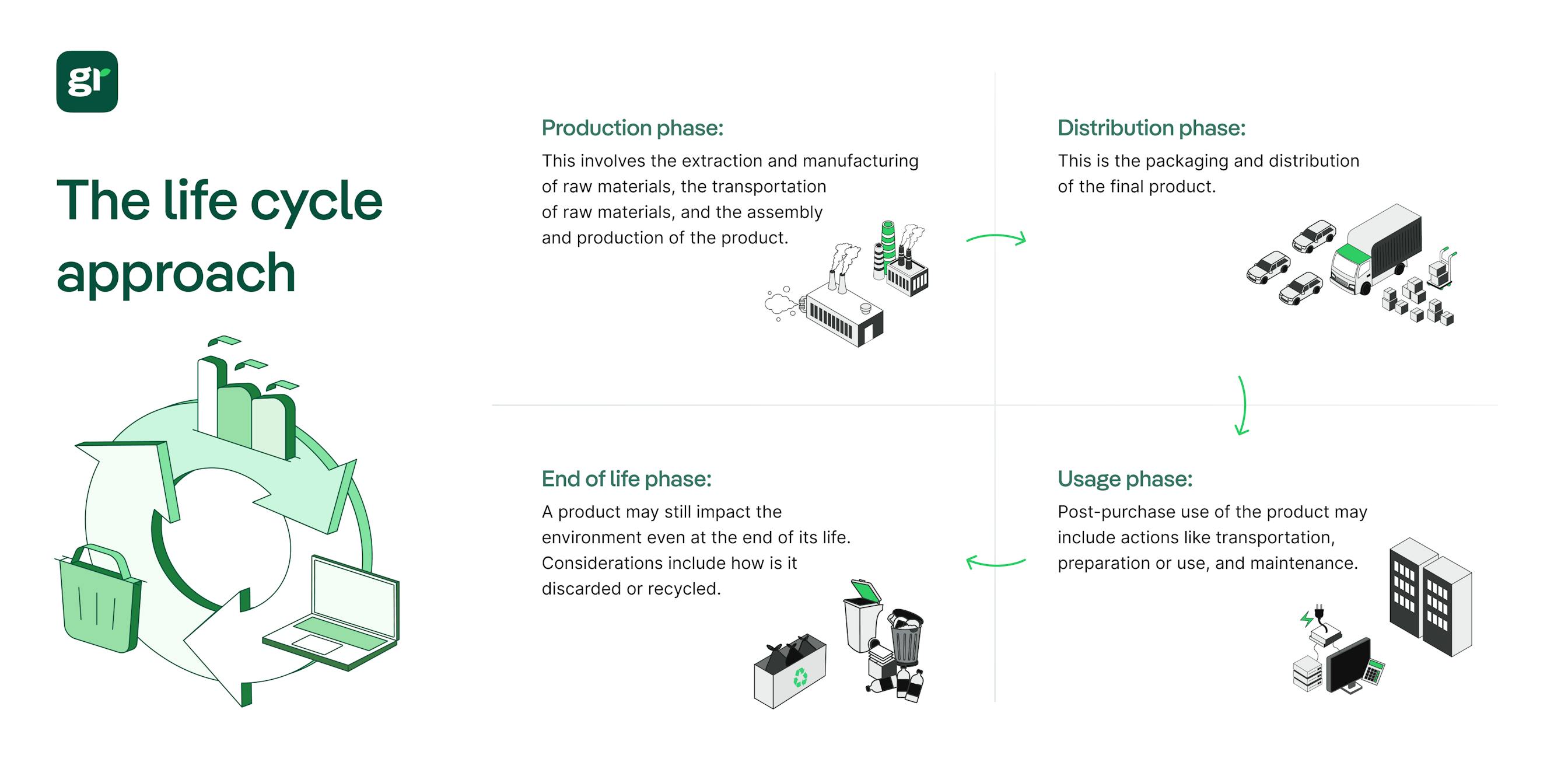This article explores what climate change consulting is and why it’s vital for business strategy.
ESG / CSR
2024-09-23T00:00:00.000Z
2024-09-23T00:00:00.000Z
en-gb
Climate change is here and it’s reshaping how businesses operate across the globe. From regulatory pressures to shifting market demands, companies are being asked to take a serious look at how they’re impacting the planet. For many, navigating this complex and evolving landscape requires expert guidance, and that’s where climate change consulting comes in.
👉 In this article, we’ll explore what climate change consulting involves and why it’s becoming an essential part of business strategy. Whether you’re looking to reduce emissions, manage climate-related risks, or ensure regulatory compliance, climate change consultants can provide the insights and expertise needed to help you stay ahead of the curve.
What is climate change consulting?
Climate change consulting refers to the professional services that help businesses and organisations understand and respond to the risks and opportunities posed by climate change. These consultants work closely with companies to assess their environmental impact, develop strategies to reduce greenhouse gas emissions and ensure compliance with ever-changing regulations.
“Put simply, climate change consultants act as guides through the complex landscape of climate policies and sustainability practices. They offer tailored advice to help organisations manage climate-related risks - whether that’s through reducing carbon footprints, transitioning to renewable energy, or adapting to physical risks like extreme weather.”
Climate change consulting can cover a wide range of services, including carbon accounting, climate risk assessments, and the development of long-term sustainability strategies. The ultimate goal is to help businesses integrate climate resilience into their core operations, ensuring they not only survive but thrive in the face of environmental challenges.
Why is climate change consulting important?
Nowadays businesses face growing pressures from all sides - regulators, investors, customers, and even employees - to take meaningful action on climate change. The risks are no longer hypothetical. Extreme weather events, shifting regulations, and increasing energy costs are directly impacting operations. Failing to adapt to these changes can expose companies to significant financial and reputational damage.
Climate change consulting plays an important role in helping businesses address these challenges head-on. Consultants provide the expertise to identify climate-related risks that may not be obvious, such as supply chain vulnerabilities due to weather disruptions or energy inefficiencies. More importantly, they offer actionable strategies to reduce these risks and turn them into opportunities for innovation and growth.
Aside from risk management, climate change consulting helps businesses stay compliant with evolving environmental regulations. With new laws on emissions reporting and sustainability targets emerging worldwide, staying ahead of the curve can give companies a competitive advantage while avoiding costly penalties.

What services are offered by climate change consultants?
Climate change consulting is not a one-size-fits-all service - it offers a wide range of specialised support depending on a business’s needs and goals. Here are some of the key services that climate change consultants typically provide:
| Service |
Description |
| Climate Risk Assessment |
Identifying and assessing the risks posed by climate change to a business's operations and developing mitigation strategies. |
| Carbon Footprint Analysis and Emission Reduction |
Measuring greenhouse gas emissions, developing reduction targets, and identifying opportunities to cut emissions through energy efficiency, waste reduction, or transitioning to renewable energy. |
| Sustainability Strategy and Reporting |
Helping organisations integrate sustainability into long-term strategies, meet ESG goals, and prepare sustainability reports that align with global standards like the GRI. |
| Compliance and Regulatory Advisory |
Helping businesses stay compliant with environmental laws and ensuring they meet mandatory reporting requirements. |
| Corporate Training and Awareness |
Providing training to employees and management on climate-related challenges and sustainable business practices. |
| Renewable Energy Transition Support |
Guiding companies in reducing reliance on fossil fuels and transitioning to renewable energy sources like solar or wind. |
| Supply Chain Sustainability |
Making supply chains more resilient and sustainable by helping businesses source responsibly, reduce emissions, and manage risks across the value chain. |
The climate consulting process
The process of climate change consulting usually involves several stages, each designed to guide businesses from understanding their climate impact to implementing effective solutions. Here’s a breakdown of the key stages:
- Initial Consultation and Needs Assessment
The first step involves meeting with the client to discuss their goals, challenges, and current climate-related initiatives. This is where consultants get a clear picture of the organisation’s priorities - whether it’s reducing emissions, complying with regulations, or preparing for future climate risks. - Data Collection and Analysis
Once the objectives are set, consultants dive into data gathering. This includes collecting information on energy use, emissions, water consumption, waste management, and any other factors that contribute to the company’s environmental footprint. Data analysis tools, such as carbon calculators or climate risk models, are often used to assess the business's current impact and forecast future risks. - Strategic Planning
Based on the analysis, consultants develop a tailored climate strategy. This might include setting emission reduction targets, identifying opportunities for renewable energy adoption, or creating a climate risk management plan. The strategy is typically aligned with industry best practices and global sustainability standards. - Implementation Support
After the plan is in place, the next step is putting it into action. Consultants help with implementing the necessary changes, whether that’s installing energy-efficient equipment, shifting to green suppliers, or rolling out employee training programs. They also ensure that timelines, budgets, and resources are managed effectively throughout this phase. - Monitoring, Reporting, and Adjustment
Climate change consulting doesn’t end with implementation. Ongoing monitoring is crucial to track progress, measure results, and adjust strategies as needed. Consultants often provide regular reporting on key performance indicators (KPIs) such as carbon emissions, energy savings, and regulatory compliance, ensuring that the business stays on track to meet its climate goals.
What are the benefits of engaging a climate change consultant?
Hiring a climate change consultant isn’t just about checking off compliance boxes - it brings a range of tangible and strategic benefits to your business. Here are some of the key advantages:
- Risk Mitigation: Climate-related risks, such as extreme weather events, regulatory changes, and supply chain disruptions, can significantly impact business operations. Climate change consultants help identify these risks early and develop strategies to minimise their impact. This could involve diversifying supply chains, preparing for regulatory shifts, or safeguarding physical assets from climate hazards.
- Cost Efficiency: Reducing carbon emissions often goes hand-in-hand with cutting operational costs. Consultants identify opportunities to improve energy efficiency, reduce waste, and streamline resource use. For example, energy audits can reveal inefficiencies in your systems, leading to significant savings over time. Transitioning to renewable energy can also provide long-term cost stability as traditional energy prices continue to fluctuate.
- Regulatory Compliance: Climate regulations are becoming more stringent across the globe. Climate change consultants help ensure that your business remains compliant with local, national, and international laws, helping you avoid fines and penalties. They can also support you in meeting reporting obligations and preparing for future regulations that may affect your industry.
- Strengthening Reputation and Brand: Consumers, investors, and employees are increasingly drawn to businesses that demonstrate a genuine commitment to sustainability. Engaging a climate change consultant shows that your company is proactive about reducing its environmental impact, which can boost your brand’s image, strengthen stakeholder relationships, and even attract new customers who prioritise environmental responsibility.
- Long-Term Business Resilience: By integrating climate resilience into your core operations, you can better withstand the uncertainties of a changing world. This can protect your bottom line while positioning your business for sustainable growth in the years to come.
- Competitive Advantage: With sustainability becoming a key factor in business decision-making, companies that take action early gain a competitive edge. Climate change consulting can help your business stay ahead of industry trends, innovate new products or services, and differentiate your brand in a market increasingly driven by environmental concerns.

Challenges
While the benefits of climate change consulting are clear, businesses should also be aware of the potential challenges and considerations before engaging in the process. Successfully integrating climate strategies requires careful planning and realistic expectations.
- Cost and Budgeting: One of the most common concerns is the cost of climate change consulting. Depending on the scope of work - whether it’s comprehensive climate risk assessments or transitioning to renewable energy - the consulting process can be expensive. However, the long-term savings from increased efficiency and risk mitigation often offset the initial investment. Businesses should ensure they budget appropriately for both consultancy fees and the cost of implementing suggested changes.
- Data Availability and Quality: Effective climate change strategies rely on accurate data. However, many companies struggle with collecting or maintaining sufficient environmental data, especially if sustainability hasn’t been a focus in the past. Incomplete or low-quality data can hinder the consultant’s ability to make accurate assessments, resulting in strategies that are less effective. Ensuring that data systems are in place is an important step before engaging a consultant.
- Organisational Resistance: Implementing climate strategies often requires changes to established processes, which can meet internal resistance. Employees may be hesitant to embrace new practices, or leadership might be reluctant to allocate resources. Consultants can help facilitate this transition through training programs and change management support, but overcoming resistance can take time.
- Long-Term Commitment: Climate change consulting is not a one-off exercise. It requires a long-term commitment to continuous improvement, monitoring, and adjustment. Businesses need to be prepared to maintain their climate strategies over time, adjusting as new data, regulations, and technologies emerge.
- Choosing the Right Consultant: The success of climate change consulting depends heavily on choosing the right consultant or firm. It's crucial to find a consultant with the right expertise in your industry, strong credentials, and a proven track record of delivering results. Additionally, the consultant should align with your company’s culture and be capable of offering tailored solutions rather than generic advice.

How Greenly Can Help You Navigate Carbon Management and Sustainability
Greenly offers a range of carbon accounting and sustainability services that help companies effectively manage their carbon emissions, meet regulatory requirements, and drive their decarbonisation efforts. Our technology-driven platform, combined with expert guidance, makes the process of carbon management more intuitive and seamless, enabling businesses to navigate their sustainability journey with confidence.
Here’s how Greenly can support your company’s carbon management journey:
Carbon Assessment
With expert guidance from Greenly’s Climate Expert Team, carbon assessment becomes a more streamlined experience.
- Manage carbon data: We integrate advanced tools such as algorithms, human-based data analysis, and API-supported data collection to offer you important insights into your company’s carbon footprint.
- Emission factors database: With our extensive library of emission factors, you’ll gain a deeper understanding of your emissions, enabling better decision-making.
- Carbon management strategies: Collaborate with our experts to develop decarbonisation strategies tailored to your needs, and ensure compliance with critical regulations such as CSRD. Customisable dashboards and comprehensive reporting features will keep your stakeholders engaged and informed.
GHG Reporting
Our GHG Reporting tools are designed to help businesses meet reporting requirements from stakeholders, investors, and regulators:
- Fully auditable GHG assessments: Ensure that all greenhouse gas emissions are reported in line with global standards.
- Investor-grade reports: We provide you with the reports needed to communicate your sustainability efforts, complete with medals and communication kits for both internal and external use.
- Tailored for any business: No matter the size or sector, Greenly's platform is designed to support your reporting needs, offering a smooth and intuitive user experience.
Life Cycle Assessment (LCA)
Greenly’s Life Cycle Assessment (LCA) service empowers businesses to assess the environmental impact of their products. By using Greenly’s platform, you can generate LCA reports and scoring in days, not months, and stay ahead of the competition:
- Enhance product transparency: Demonstrate the sustainability of your products and differentiate yourself in the market.
- Stay compliant with key standards: Our platform ensures that your assessments are fully compliant with ISO, PCF, and CBAM standards.
- Customisable LCA processes: Tailor the assessment to fit your specific needs, with flexible data input and comparison tools to evaluate the environmental impact across different products.


Sustainable Procurement
With supply chains representing up to 90% of a company’s carbon emissions, Greenly’s Sustainable Procurement service offers critical support for reducing Scope 3 emissions:
- Measure and manage Scope 3 emissions: Greenly helps businesses analyse their supply chain emissions and engage suppliers to reduce their carbon footprint.
- Decarbonise through strategic partnerships: Access our directory of scored suppliers and implement responsible purchasing policies, working collaboratively with your partners to create low-carbon solutions.
- Set SBTi reduction targets: Align your suppliers with Science-Based Targets (SBTi) and create a transition plan that moves both your company and your suppliers toward Net Zero.
Decarbonisation Strategy
Greenly’s Decarbonisation Strategy service helps you develop a science-based carbon reduction plan. Our platform and expert team guide you through every step:
- Design emissions trajectory scenarios: Using Greenly’s Decarbonisation Pathway tool, create custom scenarios for your business, complete with actionable steps and benchmarks.
- Access expert support: Leverage Greenly’s climate expertise and tools to quantify reduction potential, simulate associated costs, and create industry-specific action plans.
- SBTi certification and beyond: Ensure that your reduction strategies align with SBTi standards and stay ahead of regulatory changes, all while boosting your company’s reputation as a sustainability leader.
Carbon Offsetting
Greenly also provides support for businesses looking to offset their remaining emissions through certified climate projects:
- Impactful climate contributions: Choose from a wide catalog of certified projects and contribute to renewable energy efforts that help protect the future.
- Certified for impact: All projects meet Greenly’s stringent certification standards, allowing you to make a meaningful environmental contribution beyond your company’s operational footprint.
CSRD Reporting
With the Corporate Sustainability Reporting Directive (CSRD) becoming a crucial part of the regulatory landscape, Greenly’s platform helps businesses stay compliant with ease:
- Automated data collection and reporting: We provide CSRD-specific tools that streamline ESRS data collection, automate tagging, and generate audit-ready reports.
- Expert guidance and support: Greenly offers access to more than 100 certified consultants with strong sector expertise, ensuring that your CSRD journey is seamless from start to finish.
- Gap analysis and risk assessments: Identify data gaps and climate risks through Greenly’s AI-powered tools and ensure that your reporting meets the highest quality standards.
SBTi
Setting Science-Based Targets (SBTi) requires precision and expertise. Greenly’s platform and team are here to guide you through the SBTi process from application to validation:
- Expert training and project management: We provide tailored SBTi training and tools like the Decarbonisation Pathway Builder to ensure your targets meet the required standards.
- Supplier engagement: Greenly helps align your suppliers with SBTi requirements, ensuring that your entire supply chain is contributing to your climate commitments.
Get in touch with Greenly today to start navigating your carbon management journey with confidence.









